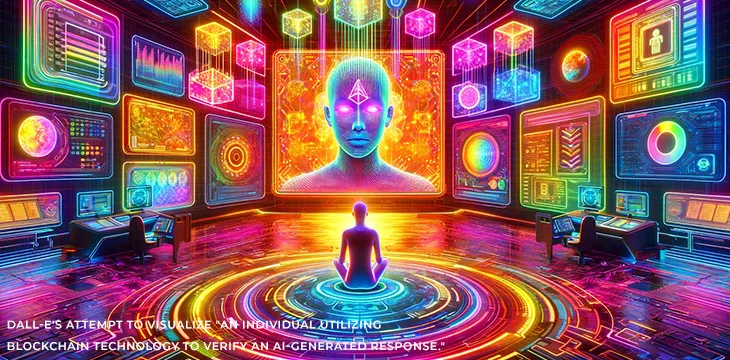|
Getting your Trinity Audio player ready...
|
There’s no question that in tech, 2023 will be remembered as the year of artificial intelligence (AI). ChatGPT burst onto the scene with its fast, concise, and well-informed answers (except when it simply made them up). A new breed of AI billionaires was created, and politicians rushed to keep up.
Of course, AI is not new. For decades, it’s been the name for any new tech capability that does something you once thought only a person could do: play chess, read maps, make Amazon recommendations, correct grammar. But this year’s AI is different. It’s so clever that even the people who invented it don’t know how it works. And some of the brightest AI engineers are campaigning to put a lid on it before it destroys us all.
AI’s sudden ubiquity reminds me of the breakthrough the Internet achieved in 1995 with the success of Netscape, the first graphical browser for the World Wide Web. Both moments feel like a mix of media frenzy, “irrational exuberance” as Fed chairman Alan Greenspan famously described the market in dot com shares and the start of a new era in technology.
Meanwhile, in the world of ‘crypto’ (into which 99% of the population unthinkingly plonks BSV), 2023 will be remembered for the rise and fall of FTX and its nerdy leader Sam Bankman-Fried, or SBF—although I predict that in five years time ‘what do those initials stand for?’ will be an extremely hard trivia question.
FTX’s extravagant Super Bowl ad precisely mirrored the Super Bowl ad that Pets.com took back in 2000, just before it came to epitomize dot com businesses that were destined never to make money. The ad became the symbol of over-reaching dot com ambition.
Already, there are candidates for that role in the ‘crypto’ world, such as the plummeting price of non-fungible token (NFT) art or the Bored Ape Yacht Club—ideas that on first hearing produced an incredulous look, with the thought: ‘that sounds ridiculous but maybe I’m too stupid to understand.’ But no, it turns out they were ridiculous ideas. Having made fun of booming NFTs in an earlier episode, Homer Simpson has recently lost his instant NFT fortune and is told by a floating pizza cat that “the NFT craze is over.”
If you’d enjoy a canter through the excesses of altcoins, NFTs, and the rest of the ‘crypto’ world, take a look at Zeke Faux’s excellent book, Number Go Up, which packages the whole crazy business into a gripping investigative journey. It made me laugh and angry at some of the destructive greed and criminality that Faux uncovers.
There are no Super Bowl ads for ChatGPT yet. Its success is more like the sudden rise of Google, which used to boast how little it spent on marketing, preferring to let users tell their friends that it simply worked better than other search engines. If ChatGPT can spread in the same way, that will be even more impressive because if you want to get the best from it, you have to subscribe—$20 a month for access to the most advanced version of the software.
But don’t rule out the rise of a generation of frothy AI apps that achieve astronomical valuations based on nothing—the Pets.coms of our time. Already, if you have ChatGPT Plus, you’re invited to subscribe to apps such as Game Time (“I can quickly explain board games or card games to players of any age”) and genz 4 meme (“i help u understand the lingo & the latest memes”).
When I spoke to Dr. Craig Wright earlier this year, he was dismissive of AI. He said it should stand for “Actual ignorance.” I read him what I thought was an impressive ChatGPT answer to a question I’d asked it—to connect the arrest of the Yorkshire ripper, who’d been identified by serial numbers on bank notes, with the idea of the pseudonymity of Bitcoin. It was an example I’ve heard Dr. Wright explain to audiences, but not as succinctly as ChatGPT put it.
Dr. Wright’s objection, and that of many others, is that AI only summarizes what it’s fed and is incapable of creativity or coming up with anything original. Even if you go along with that (and I don’t), BSV entrepreneurs won’t be able to ignore it. Indeed, where a few years ago, well-crafted business pitches had to include blockchain, today, the best startups are wise to promise to leverage the powers of AI, even if they’re not quite sure what that means.
Craig Massey, the founder of the BSV startup incubator Block Dojo, left his thriving enterprise this year to start another, AI Forge—a kind of Block Dojo for AI. He told me he’s finding it much easier to get backing for the new one. He’s being welcomed by big corporations, and rich backers are bringing out their cheque books (or digital equivalent).
But, fear not, BSV. A big role for blockchain is being developed in the brave new world of AI. It’s to verify what AI comes up with. If one of AI’s problems is that we don’t quite know whether to trust its output, then a reliable means of identifying the sources it uses could be extremely valuable. Whether this presents an opportunity for the perfect symbiosis between blockchain and AI, as blockchain proponents like to believe, or whether it’s more asymmetrical, like the ‘special relationship’ between the United States and the United Kingdom—much vaunted by the U.K., but not so much by the U.S.—remains to be seen.
For an unbiased view, I asked ChatGPT whether blockchain will be important in verifying AI. It offered an ‘on the one hand, on the other’ answer: yes, blockchain could offer transparency and data integrity, but “scalability, computational demands, and environmental concerns” could present problems.
Ah, yes, environmental concerns. Bitcoin knows all about them, and ChatGPT should probably examine itself before it lectures blockchain about them. My prediction for 2024 is that we’ll hear a lot more about the energy usage of AI. Its perky, instant responses come at a price, and not just in dollars. Users may start asking themselves whether they really need to consult AI about everything. For instance, it would be kindness to the environment not to ask the new ChatGPT app Laundry Buddy any of the questions it suggests it could help with: “Can I wash a gray hoodie with whites in cold?” and “What setting should I use for leggings?” Those are not questions that the brightest minds in computer science and the largest piles of investment money should be building technology to answer. Come on! Use your intelligence! What do you think Google is for?

In order for artificial intelligence (AI) to work right within the law and thrive in the face of growing challenges, it needs to integrate an enterprise blockchain system that ensures data input quality and ownership—allowing it to keep data safe while also guaranteeing the immutability of data. Check out CoinGeek’s coverage on this emerging tech to learn more why Enterprise blockchain will be the backbone of AI.
Watch: Konstantinos Sgantzos talks AI and BSV with CoinGeek

 02-20-2026
02-20-2026 




